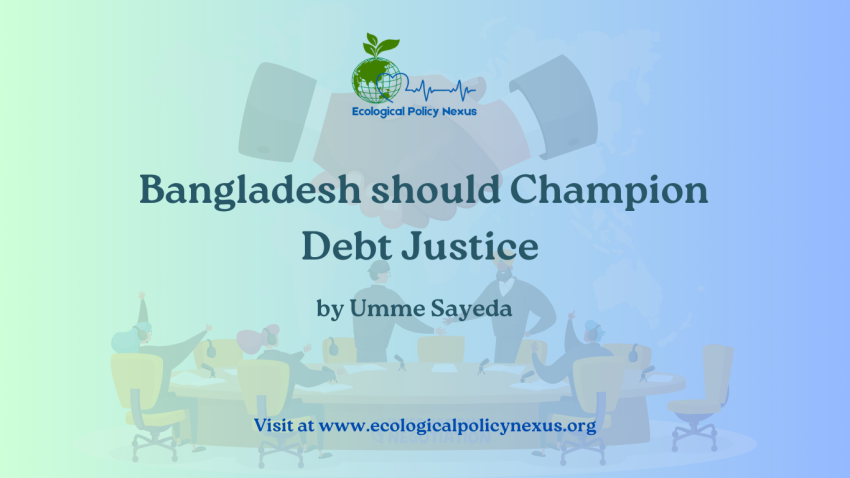Bangladesh’s strategic position at the intersection of the Bay of Bengal and the Indian Ocean has increasingly drawn global attention for geopolitical and geostrategic reasons. As we navigate an increasingly multipolar world marked by a decline in U.S. economic and military dominance, emerging powers such as China, Russia, India, and Turkiye are reshaping international relations and the global order.
In light of this evolving landscape and the recent July Uprising that ended Sheikh Hasina’s 15-year authoritarian rule, Bangladesh must now craft its diplomatic approach that embodies the aspirations of a new Bangladesh and maximises its economic and security interests.
In 1974, then Prime Minister Sheikh Mujibur Rahman adopted the foreign policy dictum ‘friendship to all, malice towards none’ for the newly independent Bangladesh. It was to express his immediate support to the Non-Alignment Movement group rather than joining the Eastern or Western bloc during the Cold War. Does this notion of ‘friendship to all’ bear the same relevance in today’s multipolar reality?
Is it realistic when unhindered environmental injustices, climate change, and other transnational threats are posing challenges to Bangladesh as well as to other Global South countries’ progress?
Also, there are several ongoing conflicts that are regional and global in scope as they involve many state and state-sponsored actors. In this context, Bangladesh, of course, should not take policies that show enmity towards any country. However, the act of balancing with major powers is a tricky one that is fraught with challenges. Bangladesh must attempt to strengthen its strategic partnership with the countries that safeguard its economic and security interests without undermining its sovereignty.
Moreover, nearly 80 low- and middle-income countries are at risk of debt distress; among these countries, 75% are classified as climate-vulnerable. The Vulnerable Twenty Group (V20), which includes Bangladesh, has experienced a staggering $62 billion increase in debt-related costs over the past decade. This is severely impacting growth as climate adversities inflate both public and private investment costs.
Furthermore, ‘conditionalities’ imposed by international financial institutions on loans—such as cutting public services, reducing social protection, and forcing market liberalisation—have compelled the countries to exploit their natural resources and implement harmful austerity measures. For instance, the WB and IMF have financed $4.8 billion and advised 100 countries accordingly to expand fossil fuel infrastructures, even after the Paris Agreement came into action.
Currently, Bangladesh spends twelve times more on debt repayment than on climate change mitigation and adaptation efforts. As climate change hinders Bangladesh’s ability to achieve its economic goals, climate diplomacy should become a cornerstone of Bangladesh’s foreign policy. Specifically, the country should prioritise the ‘debt justice’ movement in its diplomatic agenda. Bangladesh can pursue this goal in three key ways.
First, in bilateral and multilateral forums, Bangladesh should assertively negotiate with Global North countries for the cancellation of debts owed by climate-vulnerable nations. This would empower these countries to allocate more resources toward climate action, breaking the cycle of debt distress and enhancing economic stability.
Second, G20 countries initiated the Common Framework for Debt Treatments (CFDT) to come up with a plan for all creditors to restructure debt for the countries grappling with unsustainable debts. Unfortunately, this format only listed 73 poorest countries and excluded most of the middle-income but severely climate-vulnerable countries.
It further excluded any private creditors so that only three countries successfully applied for debt restructuring. The Head of the Interim Government in Bangladesh, Professor Muhammad Yunus, can utilise his positive image to pursue the Western governments and other creditors, particularly G20 countries, to redesign the CFDT more holistically or to initiate another debt relief or restructuring mechanism.
Third, Prof Saleemul Huq noted how Bangladesh’s pre-COP workshops and meetings arrangement with all sub-groups under G77 plus China to discuss their common grounds and concerns helped the Global South countries to reach a milestone in agreeing on the point of Loss and Damage Fund establishment in the United Nations Framework Convention on Climate Change (UNFCCC).
Also, Prof Huq emphasised persuading other climate-vulnerable countries through regional or interest-based platforms like the Climate Vulnerable Forum (CVF) or V20. Bangladesh should work together with civil society leaders, activists, and climate advocates to elevate the debt justice issue on the international stage.
In conclusion, Bangladesh must consider the complex dynamics of debt distress and climatic threats as an integral element of its climate diplomacy. Bangladesh would be able to pursue the journey of becoming a climate-resilient nation if it could break the vicious cycle of the climate debt trap.

